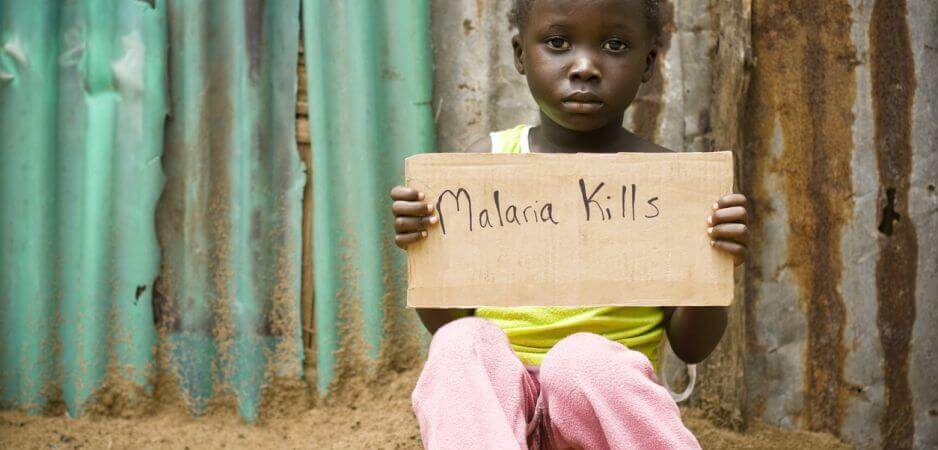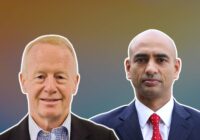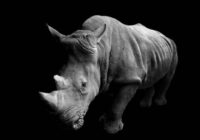Despite economic shocks and political turmoil, the jettisoning of a shady nuclear deal and the launch of a malaria vaccine are great news for Africa.
In the March edition of Africa This Month, the authors warned about the risk of famine in parts of the continent. This month, the Famine Early Warning Systems Network bellowed with the same grave message. Early season rainfall has been poor in the Horn of Africa, leaving large numbers of people facing crisis. The area needs urgent humanitarian assistance to mitigate suffering, repair the frayed social fabric and temper conflict. Such assistance might lower the number of refugees fleeing to safer shores.
The rest of Africa is doing better. Certainly, the wobbling global economy has put pressure on African economies and raised questions as to how it deals with the outside world. Yet Africa is grappling admirably with issues ranging from energy to health. Resilient communities have reacted with fortitude to economic shocks and political turmoil. The continent is experiencing profound changes, many of which bode well for the future.
SOUTH AFRICAN COURTS STRIKE DOWN NUCLEAR DEALS
Under President Jacob Zuma, South Africa has been rocked by scandal after scandal. The March 2016 edition of Africa This Month covered Zuma’s Guptagate scandal and the authors have repeatedly focused on shenanigans in the land of Nelson Mandela.
Zuma has been rather forceful in pushing through controversial nuclear power plans. He signed a deal with Rosatom, the Russian state-owned monopoly, to build nuclear reactors. Rosatom was to build eight of these at an estimated cost of more than a trillion rand or $73 billion. Zuma sealed this “strategic partnership” with President Vladimir Putin on a visit to Russia in 2014. Now, what could be wrong with such a partnership and 9.6 gigawatts of energy?
Apparently, a lot is not quite kosher in the Zuma-Putin deal. First, the bill is too high. Second, the timing is terrible. South Africa’s public finances are in dire straits with falling commodity prices and evaporating economic growth. Third, the country has relatively inexpensive renewable energy resources in the form of biogas, wind and solar power. A green energy program launched in 2012 is doing rather well. Fourth, power consumption in South Africa is not increasing rapidly enough to warrant a huge nuclear power program. Fifth, legal liability for nuclear accidents reportedly fell on South Africa even if they occurred outside the country.
Finally, the deal seems to be “off the record, on the QT and very hush-hush.” As expected, the Gupta family is rumored to be involved. The Guptas conveniently own the Shiva uranium mine near Johannesburg and, until recently, employed Zuma’s son Duduzane. More damningly, Zuma has been firing his finance ministers at the behest of the Guptas. Apparently, he has been trying to find a pliant minister who is willing to play along with a deal that benefits the Russians, the Guptas and the Zumas.
In 2015, he fired Nhlanhla Nene and appointed backbencher David van Rooyen who lasted less than a week. Then he brought in Pravin Gordhan only to sack this honest minister along with other opponents of the nuclear deal in a massive cabinet reshuffle in March. Malusi Gigaba took Gordhan’s place in this ridiculous game of musical chairs as the rand sank and South Africa’s credit rating deteriorated to junk status.
Senior members of the ruling African National Congress (ANC) erupted in fury. Barbara Hogan, widow of anti-apartheid hero Ahmed Kathrada, led the call to topple Zuma at Kathrada’s memorial service. Last month’s edition of Africa This Month paid tribute to this friend of Mandela’s who spent more than 26 years in prison and sacrificed enormously in the fight to end apartheid. Hogan’s call is damning because the golden generation of South Africa has turned against Zuma.
It is not just doddering widows who are opposing Zuma. Tens of thousands have marched in protest, demanding Zuma step down. Opposition parties, religious groups and civil society organizations have joined forces to boot him out. Mandela’s granddaughter has asked Zuma to “listen to the people and step down.”
Now, the Western Cape High Court has placed another straw on the camel’s back. The court has ruled that the Zuma-Putin deal is unlawful. It has also set aside nuclear cooperation deals with the US and South Korea. The court held that the power of the executive to enter international agreements “is subject to the requirement that it makes such agreement public and tables it before Parliament within a reasonable time.” Since Zuma’s government failed to do so, the agreements it signed “are unlawful and unconstitutional, and are reviewed and set aside.”
The court ruling is a great triumph for South African democracy and a sterling example to the rest of the continent. The doctrine of separation of powers, which betokens an independent judiciary, has lifted off the pages of theory and is well at work in practice. It has burned Icarus-like Zuma for flying too close to the sun.
TREASON IN ZAMBIA
Zambia could do well to learn from South Africa. As the authors recorded in the August 2016 edition of Africa This Month, Edgar Lungu won 50.4% while Hakainde Hichilema polled 47.7% of the votes cast. Unlike Hillary Clinton or David Cameron, Hichilema disputed the election results even though international observers deemed the election to be largely free and fair despite closer scrutiny revealing some evidence of “systematic bias” against him.
Nearly all of Africa’s postcolonial states have winner-take all systems. Such systems exacerbate religious, ethnic and personal rivalries. Zambia is no exception. Lungu and Hichilema have contested two close elections. The former fears the latter is invariably up to no good. Hichilema refuses to recognize Lungu as president. This month, Lungu’s officials arrested and charged Hichilema with treason “for failing to move off the road for the president’s motorcade at a weekend ceremony.” The charge allows no bail and can carry the death penalty.
According to the inspector general of police, Hichilema’s actions “were unreasonable, reckless, and criminal.” This official went on to say, “We shall ensure that those that would want to cause unnecessary anarchy are arrested and prosecuted.” To many, this was a storm in a tea cup — unworthy of judicial consideration, let alone the serious charges that have been leveled against Hichilema. Yet the court has refused to drop treason charges against Hichilema, raising questions about its independence and the health of Zambia’s democracy. If Zuma had Lungu’s loyal officials, his nuclear deal would have been signed, sealed and delivered to the Guptas and the Russians a long time ago.
Zambia demonstrates the challenges African democracies still face. Democracy is about much more than elections. It is about enduring institutions nurtured in a culture of abiding independence despite their interdependent function. It requires values, custom, rule of law, an independent judiciary, civil society, trust, debate, discussion and compromise. By locking up opponents on flimsy grounds and making wild accusations of treason, the Lungu regime is causing terrible damage to the fabric of Zambia’s democracy.
CATTLE AS COLLATERAL FOR BANK LOANS IN ZIMBABWE
Zimbabwe’s economy has been suffering a rather prolonged train wreck. On March 2, 2009, the Africa Economic Development Institute published a paper titled, “The Failing State of Zimbabwe,” which continues to be relevant today. It chronicled the collapse of agriculture, the devastation caused by hyperinflation and the declining health standards ravaging a country that, until recently, was the breadbasket of Africa.
President Robert Mugabe, a grand old African Big Man, seems to have sworn to live and die on the throne. He has unleashed what many call “Mugonomics” and tried to run the economy by decree. In a brilliant December 2003 article, Samantha Power chronicled how lawless Zimbabwe suffered from “an overabundance of laws” that controlled everything from the price of bread to the fuel for your car. Naturally, black market dealers prosper while ordinary citizens suffer.
 Their suffering has not stopped Mugabe’s government from bringing in more legislation. This month, the Zimbabwean parliament passed a law compelling commercial banks to accept livestock such as cattle, goats and sheep as collateral for cash loans to informal businesses. Furthermore, individuals and small business owners will be able to register their movable assets with the Reserve Bank of Zimbabwe as security for credit. These include vehicles, television sets, computers, refrigerators and other household appliances.
Their suffering has not stopped Mugabe’s government from bringing in more legislation. This month, the Zimbabwean parliament passed a law compelling commercial banks to accept livestock such as cattle, goats and sheep as collateral for cash loans to informal businesses. Furthermore, individuals and small business owners will be able to register their movable assets with the Reserve Bank of Zimbabwe as security for credit. These include vehicles, television sets, computers, refrigerators and other household appliances.
On its face, the idea of using livestock as collateral is a novel one, especially considering the African traditional regard for it as a trade commodity and a measure of wealth. Sadly for Zimbabwe, this edict does not mean much upon taking into account the long-lasting economic quagmire the country has been. Hyperinflation has made the Zimbabwean dollar worthless. People now use the US dollar when they can find it. Otherwise, the good old barter system operates. In the words of Abebe Aemro Selassie, the director of the African department of the International Monetary Fund, “Zimbabwe is in a very, very difficult situation” with “a limited amount of foreign exchange inflows coming in and no monetary policy tool.” The IMF estimates that Zimbabwe’s economy contracted by 0.3% last year and might shrink by 2.5% this year. Mugabe’s latest law is unlikely to be worth the paper it is written on.
FINALLY, A MALARIA VACCINE
If Zambia and Zimbabwe were bearers of bad tidings, the World Health Organization was the herald of a great accomplishment. The WHO announced that “the world’s first malaria vaccine” will be available in selected areas of Ghana, Kenya and Malawi from 2018. This vaccine is RTS,S, also known as Mosquirix. GlaxoSmithKline (GSK) developed it in a public-private partnership with the PATH Malaria Vaccine Initiative and with support from the Bill and Melinda Gates Foundation, along with local health organizations from seven African countries.
It “is the first and, to date, the only vaccine to show a protective effect against malaria among young children in Phase 3 clinical trials.” For years, the development of a malaria vaccine has been the Holy Grail for scientists in the public health arena. RTS,S has been 30 years in the making and it marks a major breakthrough. Malaria affects hundreds of millions every year, largely in poor countries. In 2015, this mosquito-borne illness claimed 429,000 lives.
In recent years, malaria has gradually been curbed. From 2000 to 2015, there was a 41% reduction in malaria cases and a 62% decline in malaria deaths. This vaccine will be a great boost to Sub-Saharan Africa where 43% of those at risk of the disease do not have access to mosquito protection such as bed nets or bug spray. The vaccine will save many more lives. About 750,000 children between 5 and 17 months old will be vaccinated. So far, the vaccine has been tested on 15,000 children and has prevented malaria in 40% of the cases. It remains to be seen how the vaccine will perform in real-world conditions.
As with many things, success will depend on implementation. The vaccine has to be administered in four doses that have to be implemented in a timely manner. The tests will begin in Malawi. The WHO and GSK will provide $49.2m for the test pilot program, matching the contribution of their partners. Needless to say, the vaccine is a great triumph not only for Africa, but for humanity as whole.
The views expressed in this article are the author’s own and do not necessarily reflect Fair Observer’s editorial policy.
Photo Credit: MShep2
Support Fair Observer
We rely on your support for our independence, diversity and quality.
For more than 10 years, Fair Observer has been free, fair and independent. No billionaire owns us, no advertisers control us. We are a reader-supported nonprofit. Unlike many other publications, we keep our content free for readers regardless of where they live or whether they can afford to pay. We have no paywalls and no ads.
In the post-truth era of fake news, echo chambers and filter bubbles, we publish a plurality of perspectives from around the world. Anyone can publish with us, but everyone goes through a rigorous editorial process. So, you get fact-checked, well-reasoned content instead of noise.
We publish 2,500+ voices from 90+ countries. We also conduct education and training programs
on subjects ranging from digital media and journalism to writing and critical thinking. This
doesn’t come cheap. Servers, editors, trainers and web developers cost
money.
Please consider supporting us on a regular basis as a recurring donor or a
sustaining member.
Will you support FO’s journalism?
We rely on your support for our independence, diversity and quality.






